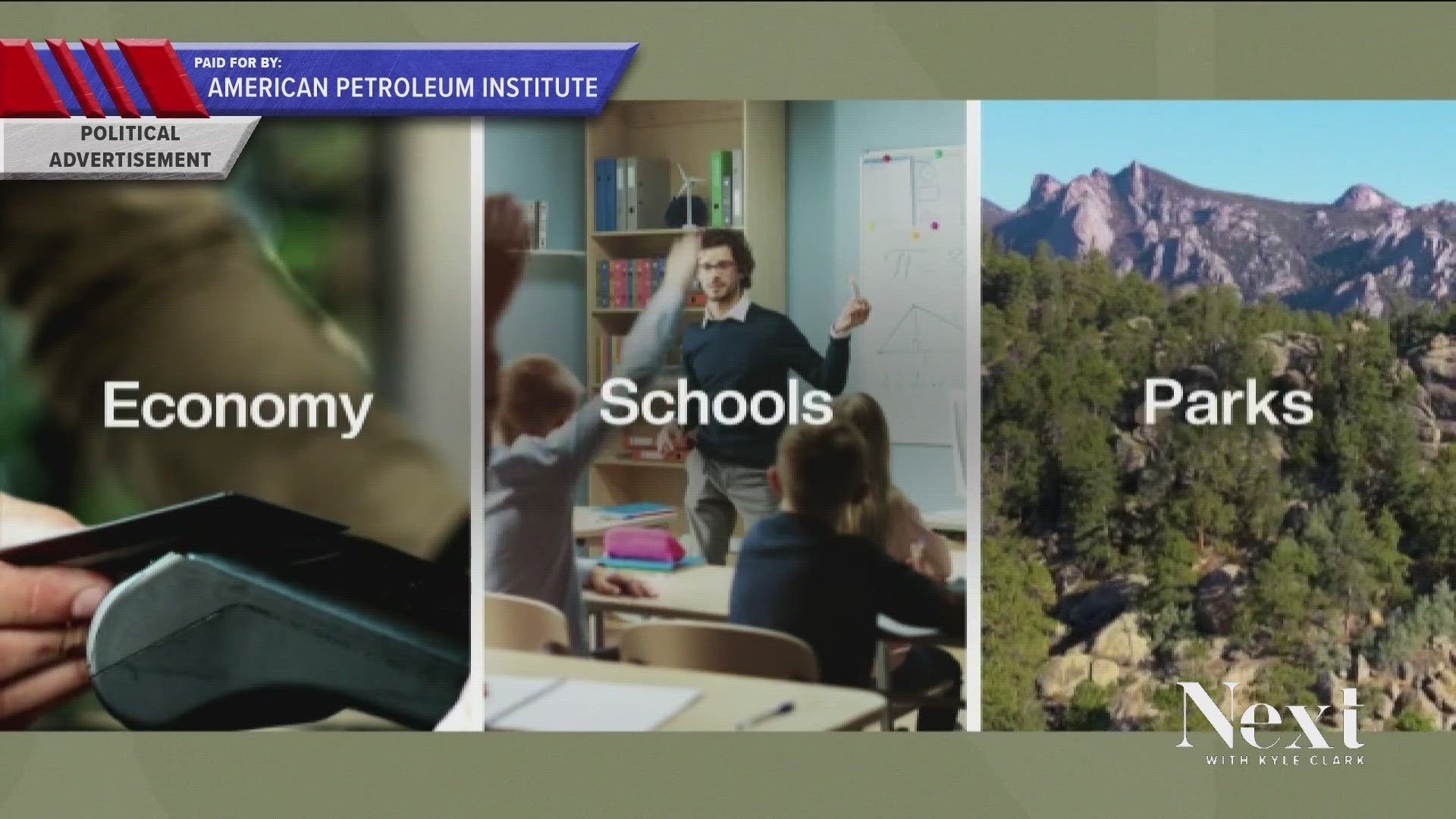DENVER — Even political ads about a bill that has no chance at passing deserve to be checked for facts.
The American Petroleum Institute is airing a political ad that seems dark and scary about oil and gas legislation at the Capitol. The main bill that the ad targets will either die in committee or never make it out of the Senate chamber, based on conversations 9NEWS has had with several people inside the Capitol.
The bill, to ban oil and gas drilling in Colorado starting in 2030, would not have a good chance even if it made it to the desk of Democratic Gov. Jared Polis.
AD CLAIM: “Here in Colorado, our economy, good schools and state parks are all powered by oil and natural gas.”
VERDICT: Huh? State parks powered by oil and gas?
This statement is a reference to the state’s severance tax. Severance taxes are imposed on the production or extraction of oil and gas.
Colorado Parks and Wildlife receives two percent of its funding through the severance tax.
We will get to the school reference in a later claim.
AD CLAIM: “A handful of politicians in Denver are pushing the most extreme anti-energy bills in state history.”
VERDICT: This is opinion. “Extreme” and “anti-energy” are opinion words. And energy can be produced in other ways, like solar and wind.
However, the main bill referenced in this ad, Senate Bill 24-159 would reduce the number of new oil and gas well permits in 2028 and 2029 and then ban new well permits in 2030.
AD CLAIM: “A total ban on new oil and natural gas development.”
VERDICT: Yes, Senate Bill 24-159 would ban new oil and gas wells starting in 2030, however, even Coloradans for Responsible Energy Development states that after drilling, wells can produce for 20 to 40 years.
AD CLAIM: “And miles of red tape that could jeopardize school funding, over 300,000 Colorado jobs and the ability to meet energy demand.”
VERDICT: Yes and no. No, it would not necessarily jeopardize school funding, but yes, it would impact where school funding comes from.
Each year, school districts know how much they are supposed to receive in a combination of local property tax dollars and State of Colorado backfill from the legislature.
Schools are first funded by local property taxes.
If those taxes do not get the district to the dollar amount they are supposed to reach, then the state legislature backfills the rest.
When oil and gas get extracted from the ground, it means school districts in oil and gas rich areas, like northeastern Colorado and the Western Slope, are funded more through local property tax dollars. If oil and gas operations end in those areas, the state legislature would have to spend more state dollars on those districts, which could impact other areas of the state budget.
As for the 300,000 local jobs claim, that is a big stretch.
According to the U.S. Bureau of Labor and Statistics, there are closer to 20,000 direct oil and gas jobs in Colorado:
- Oil and gas extraction
- Drilling oil and gas wells
- Support for oil and gas operations
- Oil and pipeline construction
- Pipeline transportation
The 300,000 job statistics takes into account those direct jobs and indirect jobs, like a neighborhood gas station.
Banning new wells in Colorado does not mean local gas station employees lose their jobs.
Bottom Line: The bill to ban oil and gas well permits is not going to make it out of the legislature. Though, there is an attempt to get something similar on the November ballot through the petition process. Banning oil and gas wells in Colorado would eventually have an impact on property tax dollars, which would in turn force the state legislature to spend more on education out of the state budget than it currently does. That would have a trickle-down effect on other areas of the state budget. The timeline for that, however, is not clear since oil and gas wells can produce for decades.
More reporting by Marshall Zelinger:
SUGGESTED VIDEOS: Full Episodes of Next with Kyle Clark

